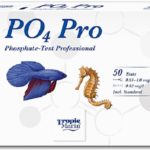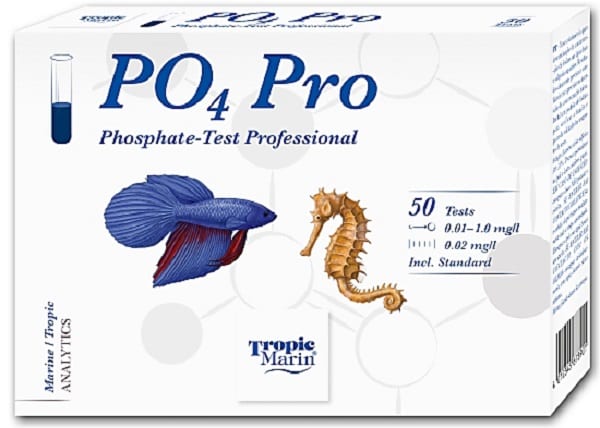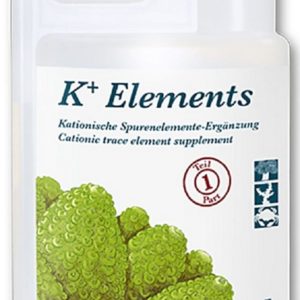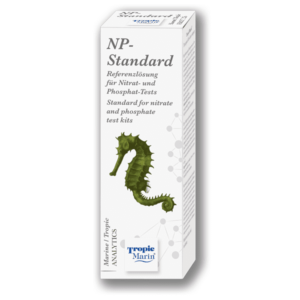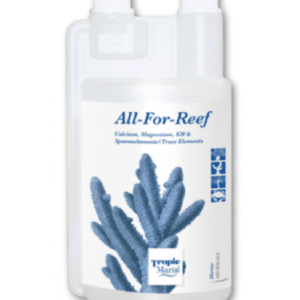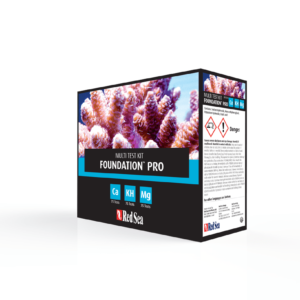Description
For high precision determination of the phosphate concentration.
Phosphates (PO43–) are important nutrients for all plants and are vital for the energy metabolism of every living cell. Phosphates are released into the aquarium water via food and the decomposition process of organic matter. However, an unregulated increase in the phosphate concentration creates problems, such as significant algae growth. In addition, phosphates in salt water aquariums can seriously inhibit the deposition of calcium carbonate in the skeleton formation process of hard corals and, in turn, for their growth. On the other hand, there can be a shortage of phosphate if there is a high stock of plants and / or corals and a low fish population. In this situation, phosphate will need to be added. Some reef aquariums are intentionally set up to have ultra-low nutrient conditions – phosphate shortages can occur in cases such as these.
The phosphate concentration in natural saltwater is approximately 0.06 mg/l (ppm). However, the phosphate concentration in coral reefs may be much lower, typically between 0.01 and 0.02 mg/l (ppm). The objective is to establish an appropriate level in relation to the number and type of aquarium inhabitants. In freshwater applications, a phosphate concentration of up to 0.4 mg/l (ppm) is suitable; however 1 mg/l (ppm) should not be exceeded. Even a concentration of 0.02 mg/l (ppm) is adequate for supplying aquatic plants with nutrients. Therefore, the phosphate concentration in the aquarium water should be tested regularly.
The Tropic Marin Phosphate Pro Test allows the Aquarist to determine the phosphate concentration with a particularly high accuracy in the low concentration range between 0.01 and 1 mg/l.

